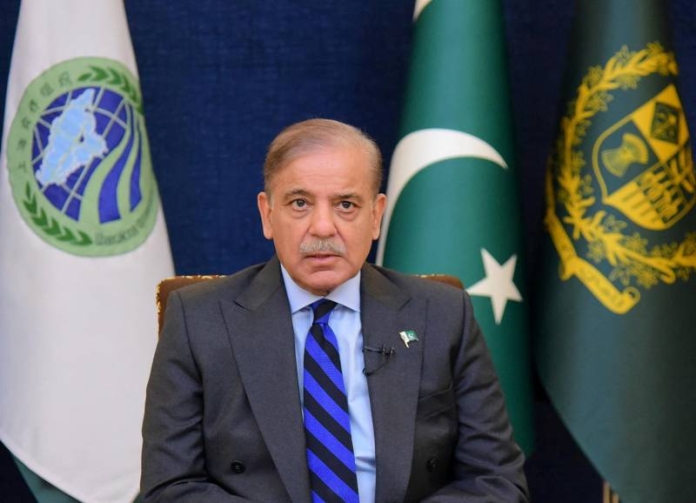ISLAMABAD, OCT 10 (DNA) : Prime Minister Shehbaz Sharif said on Thursday that the federal government would be terminating its contract with five independent power producers (IPPs) in the first phase, promising relief to the inflation-hit people.
There was an uproar across Pakistan recently as people have been receiving high electricity bills, which prompted the Shehbaz-led administration to reconsider the agreements with IPPs as capacity payment charges are included in power bills.
“Consumers will save Rs60 billion overall annually and the national exchequer will save Rs411 billion. These five IPPs kept the nation’s interests first and their interests aside. The take and pay system has ended for them,” the prime minister told his cabinet members.
Addressing the cabinet meeting, the premier said that tariffs would also be reduced by gradually revising agreements with other IPPs in the power sector.
PM Shehbaz said: “The rate of inflation was more than 30% [in the same month during the previous year], it now stands at 6.9%.”
Praising the five IPPs, the premier said they played a key role in initiating public relief like the first drop of rain.
Earlier this month, the IPPs had agreed to terminate their contracts as demanded by the government.
An official, who was part of the task force on the power sector, the modalities were being settled, and once finalised, all five IPPs would sign the documents to terminate the contracts.
The development came after PM Shehbaz’s administration, last month warned the IPPs’ owners of “consequences” over failure to voluntarily terminate the power purchase agreements (PPAs).
“The entire cabinet, including me, is grateful to these IPP owners,” he added, further mentioning that the task force established for the reform of the power sector and the members of the federal cabinet deserve praise for this effort.
He also highlighted the record increase in remittances from overseas Pakistanis. “Record remittances of $8.8 billion in the last quarter reflect the confidence of overseas Pakistanis in government policies.”
During the cabinet meeting, the details of the agreement between the task force and the owners of the IPPs — including Hubco, Lalpir, Saba Power, Rousch Power and Atlas Power — and the process of concluding the agreements with them were presented before the cabinet.
Out of these IPPs, Rousch Power was established under a build-own-operate-and-transfer agreement, which will be privatised by the Privatisation Commission after the transfer of its ownership to the government.
The ownership of the other four IPPs will remain with their owners, while no payment will be made by the government after terminating the government contract.
Govt power deal ends prematurely, says Hubco
Meanwhile, Pakistan’s biggest private utility, Hub Power Company Ltd, unveiled on Thursday the premature termination of a pact for the government to buy power from a southwestern generation project.
The government and market operator the Central Power Purchasing Agency (CPPAG) agreed to settle the company’s outstanding receivables up to Oct 1, it told the Pakistan Stock Exchange in a notice.
The step comes after Power Minister Awais Leghari told Reuters last month the government was re-negotiating deals with independent producers to rein in electricity tariffs as households and businesses buckle under soaring energy costs.
The company said its board approved an accelerated expiry date of October 1 for the deal, instead of an initial date of March 2027, in an action taken “in the greater national interest”.
A decade ago, Pakistan approved dozens of private projects by independent power producers (IPPs), financed mostly by foreign lenders, to tackle chronic shortages.
But the deals, featuring incentives such as high guaranteed returns and commitments to pay even for unused power, ultimately resulted in excess capacity after a sustained economic crisis slashed consumption.
Short of funds, the government has built those fixed costs and capacity payments into consumer bills, sparking protests by domestic users and industry bodies.
The need to revisit power deals was a key issue in talks for a critical staff-level pact in July with the International Monetary Fund (IMF) for a $7-billion bailout.
Pakistan has begun talks on reprofiling power sector debt owed to China and structural reforms, but progress has been slow. It has also vowed to stop power sector subsidies.

















